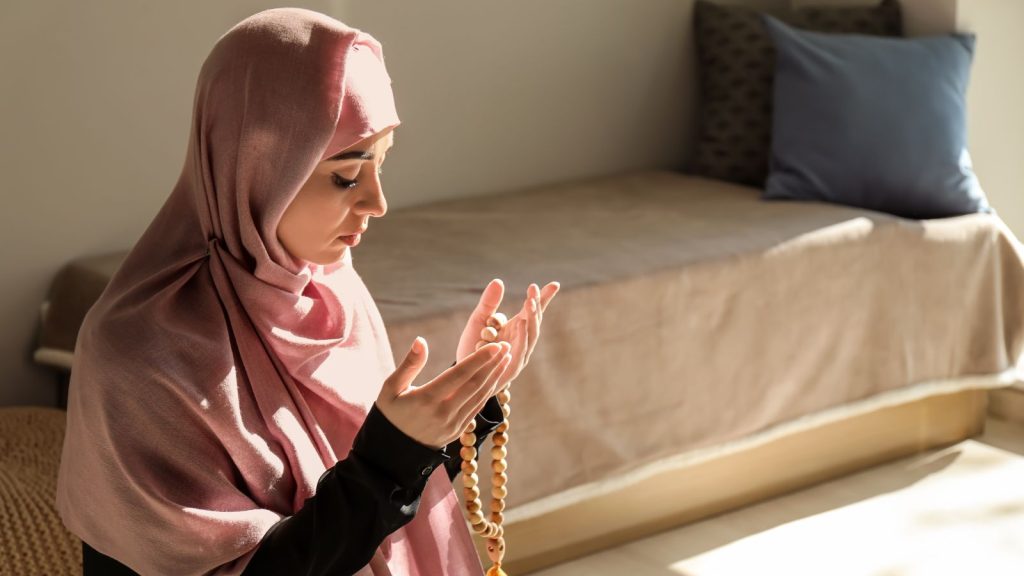Here’s why so many turn to prayer.
Regardless of your faith or spiritual beliefs, the practice of prayer can be a deeply enriching part of daily life. Some insist that they pray every day because it keeps them on the right path. Still, others have sworn it off for personal reasons. This article is for those of any denomination who are on the fence and have been reconsidering the power of prayer.
Here are ten reasons to pray
Let’s explore ten compelling reasons why making time for prayer every day can be beneficial for anyone, from any walk of life.
- Fosters Inner Peace: Prayer can be a tranquil oasis in the hustle and bustle of daily life. It’s a time to calm your mind, find centering, and seek inner peace, something we all could use a little more of.
- Enhances Self-Reflection: Taking time to pray allows you to reflect on your life, ponder your choices, and consider your direction. It’s like holding up a mirror to your soul.
- Provides Comfort: In times of stress, uncertainty, or sorrow, prayer can offer immense comfort and solace. It’s a reminder that you’re not alone in your journey.
- Strengthens Beliefs: Regular prayer can solidify your beliefs and values. It’s a way to reaffirm what’s important to you and stand firm in your convictions.
- Builds Gratitude: Prayer often involves giving thanks, which can shift your perspective from what you lack to what you have. This practice of gratitude is known to enhance overall well-being.
- Encourages Compassion: Praying for others fosters a sense of empathy and compassion. It connects you to the wider world and its myriad struggles, encouraging a more altruistic outlook.
- Offers Guidance: In moments of indecision or confusion, prayer can be a source of guidance and clarity. It’s a way to seek wisdom beyond your own and open up to insights you might not have considered.
- Reduces Anxiety: Engaging in prayer can have a calming effect, reducing feelings of anxiety and stress. It’s a moment to let go of your worries and surrender them to a higher power.
- Connects with Community: For many, prayer is not just a solitary activity but also a communal one. It connects you with others who share your beliefs and values, creating a sense of belonging and unity.
- Encourages Mindfulness: Prayer is, at its heart, a mindful practice. It encourages you to be present in the moment, aware of your thoughts and feelings, and connected to your deeper self.
How to add prayer to your routine, one step at a time
Are you looking to incorporate prayer into your daily life but unsure where to start? Don’t worry; establishing a prayer routine can be a simple, enjoyable process. Here’s a step-by-step guide to help you integrate this enriching practice into your everyday routine.
1. Set a specific time to pray
Consistency is key. Choose a specific time for prayer each day, whether it’s in the morning, during your lunch break, or before you go to bed. Aligning it with a daily activity can also help make it a habit, like after brushing your teeth or right before your morning coffee.
2. Create a peaceful space for prayer
Find a quiet, comfortable spot where you can be undisturbed. It doesn’t have to be elaborate – a corner of your bedroom, a cozy chair, or even a spot on your balcony. The idea is to have a dedicated space that signals to your mind, “This is where I pray.”
3. It’s okay to start small
If you’re new to prayer, start with just a few minutes a day. Gradually increase the time as you become more comfortable with the practice. There’s no need to rush or force it.
4. Use a guide or focal point while you pray
If you’re unsure what to say, consider using prayer books, apps, or online resources as a guide. Alternatively, you can focus on a specific thought, word, or object to center your mind. For instance, Catholics use a Rosary for praying and Muslims focus on turning toward Mecca.
5. Include different elements during prayer
Your prayer can include expressions of gratitude, requests for guidance or help, thoughts for others, or reflections on your day. Feel free to vary the elements to suit your mood and needs.
6. Make praying a time of self-reflection
Use prayer as a time for self-reflection. Contemplate your actions, your goals, and how you’re feeling. It’s a time to be honest with yourself in a safe, non-judgmental space.
7. Stay flexible about praying
Some days you might find it easy to pray, while others might feel challenging. That’s okay. The key is to be flexible and not get discouraged. Prayer is a personal journey that ebbs and flows.
8. Combine prayers with meditation
Consider combining your prayer with meditation or mindfulness practices. This can enhance your focus and make your prayer time even more meaningful and calming.
9. Keep a prayer journal
Consider keeping a prayer journal to write down your thoughts, prayers, or any insights that come to you during this time. This can be a great way to track your journey and reflect on your growth.
10. Be patient and open
Finally, be patient with yourself and stay open to the experience. Prayer is a personal journey, and it’s different for everyone. Allow yourself the time to find your path and what works best for you.

Whether you pray every day (or not!) is a highly personal choice
Whether you’re deeply religious, casually spiritual, or simply in search of a quiet moment of introspection, prayer can be a powerful tool. It doesn’t matter how you pray, how long you pray, or even what words you use – it’s the act itself that matters. Try incorporating prayer into your daily routine and observe the subtle, yet profound, changes it brings to your life.
Adding prayer to your routine is about creating a moment in your day that’s just for you and your thoughts or beliefs. It’s a practice that can bring a profound sense of peace, clarity, and purpose to your life. Give it a try and see how it transforms your daily experience.
Remember, there is no right or wrong way to pray. It’s all about what feels meaningful and fulfilling to you. Happy praying!



